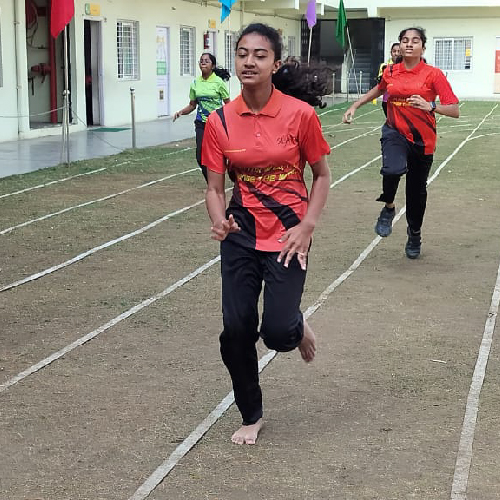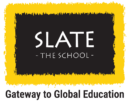The importance of choosing the right school for your child cannot be overstated. Choosing a good school is a pivotal decision that affects every aspect of your child’s growth and development.
The Importance of Choosing the Right School
When making this crucial choice, consider the following factors to ensure you select a school that aligns with your child’s needs:
- Educational Quality: The primary role of any school is to provide quality education. The quality of a school’s education can be judged by the school’s curriculum, teaching methods, and academic performance. A school with a strong academic record offers a robust foundation for your child’s future learning and career opportunities.
- Curriculum and Extracurriculars: A well-rounded curriculum that includes both academic subjects and extracurricular activities is essential. Extracurricular activities such as music, sports, and art contribute to holistic development, helping students explore their interests and talents. This balance is necessary to cultivate well-rounded individuals equipped for success in both academic and personal spheres.
- School Environment: The school’s role in child development goes beyond ensuring good grades and test scores. They need to provide a positive, nurturing environment that enhances learning and personal development. It is important to evaluate the atmosphere in which your child will spend the greater portion of their day. A supportive environment promotes emotional well-being and a love for learning.
- Teacher Quality: Effective teaching is central to a child’s educational experience. The dedication and quality of the teaching staff are hallmarks of excellent schools. Experienced and passionate teachers can inspire students, foster a love for learning, and provide personalized support.

The Best School for Kids: What to Look For
Now that we’ve established the importance of choosing the right school, let’s learn how to select a good school. Finding the best school for kids involves assessing several factors that ensure the institution will meet your child’s educational and personal needs:
- Holistic Development: Look for schools that emphasize holistic development, integrating academics with physical, emotional, and social growth.
- Values and Culture: A school’s values and culture should align with your family’s principles. The best schools will have a culture that promotes ethical behaviour, respect, and inclusivity, helping shape your child’s character and values.
- Support Systems: Ensure the school has robust support systems such as counselling services, academic mentoring, and special education resources. These systems are vital for addressing individual needs and ensuring every student’s success.

The Importance of Good Education
A good education is critical for a child’s future. The following points highlight the importance of good education:
- Skill Development: Quality education develops essential skills such as critical thinking, problem-solving, and effective communication. These skills are needed for academic success and future career opportunities.
- Future Opportunities: A strong educational foundation opens doors to higher education and career paths. Students who excel academically are more likely to gain admission to prestigious institutions and secure desirable jobs.
- Personal Growth: Beyond academics, education fosters personal growth. It encourages creativity, curiosity, and a lifelong love of learning, contributing to a fulfilling and successful life.
School’s Role in Child Development
The school’s role in child development is comprehensive and multifaceted:
- Emotional and Social Skills: Schools play a crucial role in helping children develop emotional intelligence and social skills. Through peer and teacher interactions, students learn to navigate social complexities, understand their emotions, and build supportive connections and meaningful relationships.
- Academic Achievement: A school provides the necessary resources and guidance for academic success. This includes a structured curriculum, qualified teachers, and support systems that help students achieve their academic goals.
- Physical Development: Physical education and activities contribute to a child’s physical health and well-being. Schools that offer sports and physical activities promote a healthy lifestyle and help students develop physical coordination and fitness.

The Mistakes Parents Make in Choosing a School
Selecting the right school is a significant decision that can shape your child’s future. However, many parents make mistakes during this process, which can impact their child’s educational experience. Here are some common mistakes and detailed explanations of each:
- Focusing Solely on Academic Performance
While academic performance is important, it’s not the only factor to consider. Parents often prioritize test scores and academic rankings without evaluating other aspects of the school. A school with high academic achievements might not necessarily provide a supportive environment or meet your child’s individual needs. It’s essential to look at the overall educational experience, including the curriculum, teaching methods, and emotional support systems.
- Ignoring the School’s Culture and Values
The culture and values of a school play a crucial role in a child’s development. Parents may overlook how well the school’s values align with their own family values. A mismatch in values can lead to discomfort and conflict for both the child and the parents. Understanding the school’s approach to discipline, ethics, and community involvement helps ensure that the environment supports your family’s principles.
- Overlooking Extracurricular Opportunities
Extracurricular activities are necessary for a child’s overall development, including their social skills, creativity, and physical health. Parents sometimes focus exclusively on academics and ignore the importance of sports, arts, and other extracurriculars. Co-curricular activities provide children a platform to discover their talents, build confidence, and develop a holistic skill set.
- Neglecting the Importance of Teacher Quality
The effectiveness of a school largely depends on the quality of its teachers. Parents might not investigate the qualifications, experience, and teaching styles of the staff. Good teachers engage students, making a significant difference in their educational experience. It’s important to assess teacher qualifications, student-to-teacher ratios, and how the school supports professional development for its staff.
- Failing to Consider the School’s Support Systems
Schools should have robust support systems, including counselling services, special education resources, and academic mentoring. Parents sometimes overlook these aspects, which can be crucial for addressing individual needs and challenges. A school with effective support systems ensures that children receive the assistance they require to succeed academically and emotionally.
- Not Evaluating the School’s Facilities
The quality and availability of facilities such as libraries, laboratories, and sports complexes can significantly impact the learning experience. Parents may neglect to evaluate these resources when choosing a school. Modern, well-maintained facilities enhance the educational environment and provide students with the tools they need for a comprehensive learning experience.
- Ignoring Commute and Location
The location of the school and the daily commute can affect a child’s overall experience. Parents might choose a school based solely on its reputation without considering how the commute will impact their child’s daily routine. A long or stressful commute can lead to fatigue and negatively affect a child’s attitude towards school. It’s important to factor in the school’s proximity and the convenience of transportation options.
- Underestimating the Importance of Parent Involvement
Schools that encourage and facilitate parent involvement can offer a more supportive educational environment. Parents sometimes overlook the role they play in their child’s education and how the school engages with families. Schools that actively involve parents in the educational process foster better communication and collaboration, benefiting the child’s overall development.
- Making a Decision Based on Trends
Trends and popularity can influence school choice, but these factors should not be the sole basis for making a decision. Parents may choose a school because it is trendy or highly advertised without thoroughly researching whether it meets their child’s specific needs. It’s crucial to focus on what best supports your child’s unique requirements rather than being swayed by trends.
- Failing to Visit the School
A school visit provides valuable insights into the environment, facilities, and daily operations. Parents often make decisions based on information gathered online or through recommendations without visiting the school. A personal visit allows parents to observe the school’s atmosphere, interact with staff, and assess whether the environment is conducive to their child’s learning and development.
Slate the School: The Best School in Hyderabad
Slate the School is distinguished as the best school in Hyderabad for several reasons, reflecting its commitment to exceptional education and holistic development:
Foundation & Vision
Slate the School, founded by the esteemed educator Mr. Amarnath, is set apart by its commitment to quality education over profit. Unlike many institutions that prioritize financial gain, Slate offers an accessible fee structure without compromising educational quality. This reflects a genuine dedication to ensuring quality education is available to all.
Holistic Education
Under Mr. Amarnath’s leadership, Slate focuses on holistic education, blending academic excellence with life skills development. The school integrates traditional values with global perspectives for comprehensive growth. Teachers are recruited and trained to adapt to evolving educational methods, ensuring that students receive a well-rounded education.
Innovative Learning Environment
Slate rejects passive teaching methods and excessive digital media reliance, opting instead for a Wi-Fi-free environment. This promotes healthy learning habits and creativity, helping students stay focused and engaged. This innovative approach also creates a conducive learning atmosphere.
Core Values
Slate the School embraces core values of simplicity, empathy, and authentic leadership. The school avoids elitism and consumerism, focusing instead on meaningful education and personal growth. This philosophy ensures that students receive a genuine and values-driven education.
SMAART Program
Understanding the importance of good education in today’s rapidly evolving world, Slate introduces the SMAART (Science, Maths, Advanced Computing Technology, Applied Behavioural Studies, Robotics, & Technology) program, which aligns with the latest advancements in science and technology. This program prepares students for future challenges and opportunities by going beyond what is taught in the outdated IT and Medical exam preparation courses.
STEP-22 Philosophy
Slate’s STEP-22 (SLATE Transformative Education Policies) includes several key initiatives:
- Smartphone Prohibition: To prevent screen addiction and ensure focus on studies, Slate prohibits smartphone use.
- Balanced Diet: Encouraging healthy eating habits as a lifestyle choice.
- Multilingual Early Learning: Introducing three languages by age five and strengthening connection with the mother tongue.
- Full-Day Pre-Primary: Supporting psychological and physical development while assisting working parents.
- Mentoring System: Assigning mentors to guide students’ academic journeys and maintain communication with parents.
- IKSHANA Kit: Providing a hands-on learning kit to enhance mathematical intelligence.
- Revamped Evaluation: Implementing assessments that prioritize comprehension and practical application over rote learning.
- Counselling and Prevention: Using Mr Amarnath’s techniques to address issues like smartphone addiction, unhealthy eating, and bullying.
- Practical Skills: Teaching essential household skills to promote self-reliance.
- Classroom Work: Ensuring assignments are completed in class, with ‘homework’ focusing on reading, hobbies, and family activities.
- Signature Textbooks: Offering custom-designed textbooks from Nursery to Class 5 to ignite scientific curiosity.
- Kinesthetic & Spatial Intelligence: Enhancing physical and cognitive abilities through targeted activities.
In conclusion, choosing the right school is a complex decision with far-reaching implications for your child’s future. By avoiding some common blunders and carefully considering factors like educational quality, support systems, and values, you can make a choice that supports your child’s development and success. Remember, the importance of choosing the right school cannot be overemphasized. It’s a decision that is bound to have a lasting impact on your child’s life.
If you are seeking an exceptional school for your child, consider Slate the School. With multiple campuses strategically located across Hyderabad in Ameerpet, Abids, Himayat Nagar, Bowrampet, and Karmanghat, we are dedicated to delivering top-tier education to families throughout the city.

